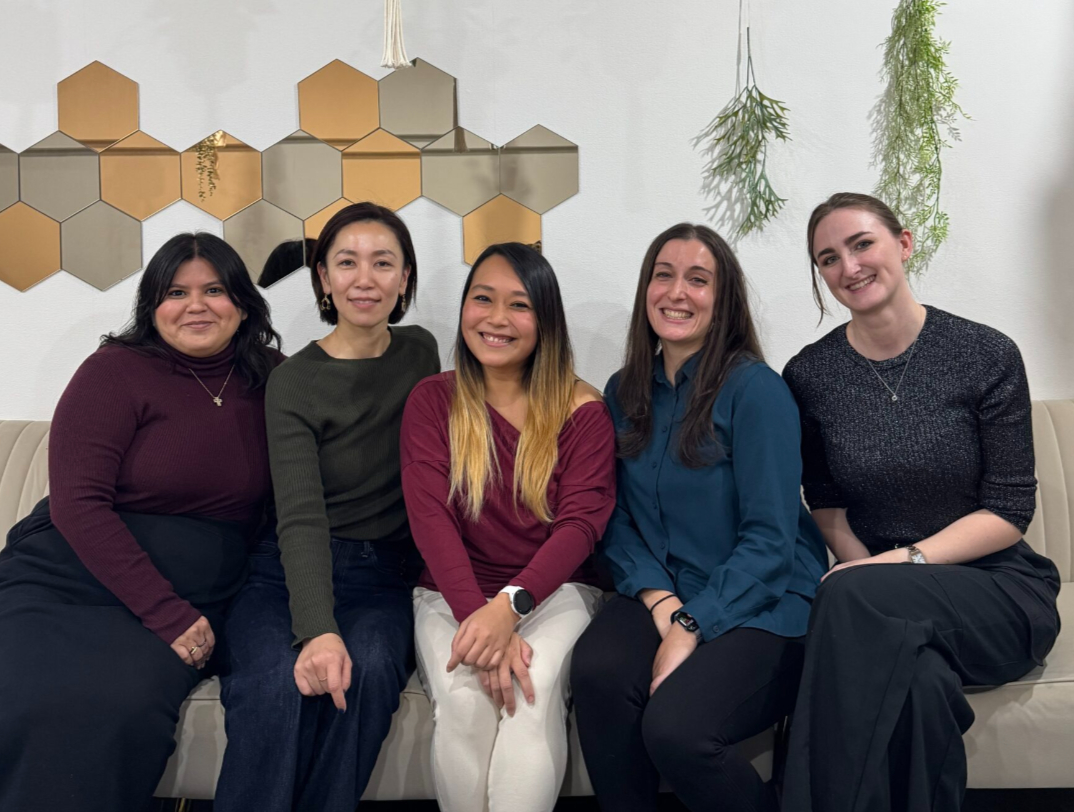Are you looking to move to Japan but struggling to figure out what career path to pursue? The most popular jobs for foreign people involve English teaching in Japan, and this could be the perfect opportunity for you! If you enjoy working with children or have a passion for teaching, this can be an efficient way to earn money while immersing yourself in Japanese society.
Through globalisation and the search for new opportunities, there has been an increase in companies seeking English-speaking foreigners to improve the English language proficiency of their people. The good news is, you don’t need a degree in teaching to teach in Japan!
English Teaching in Japan: Types of Job Opportunities Available
Eikaiwa

Eikaiwa is probably one of the most accessible jobs on this list. It is very popular as a foreigner’s first job in Japan as they don’t require the qualifications that a usual teaching job would seek. Additionally, depending on the company you choose, they will sponsor your visa and help prepare you for moving to Japan. Having a degree will help obtain a visa more smoothly, but remember, it doesn’t have to be a teaching one!
Eikaiwa are conversational schools designed to complement the public education system, supporting Japanese people in improving their English conversational skills. Unlike traditional schools, Eikaiwa does not operate within established high schools or middle schools. Instead, it is more akin to a private or cram school. Eikaiwa accepts students of all ages, from infants to the elderly, who want to learn English for various reasons, including hobbies or exam preparation.
Eikaiwa is unique because it teaches English from a conversational standpoint rather than a grammatical one. This can be more beneficial because, instead of memorising a multitude of verbs and adjectives to pass an exam, you use these words practically through verbal communication.

There are many large Eikaiwa business chains you can apply to, and they typically offer some basic training before you start to prepare you for your new working environment. The company will guide you through the curriculum and textbooks provided to students, enabling you to create lesson plans from those specific modules.
Depending on the company, your hours and workdays may vary, but generally, you can expect to work 8-9 hours a day (8-9 different classes), amounting to around 40-45 hours per week over five days. Class sizes can range from 1-10 students of all ages.
Many Eikaiwa companies will set you up in multiple locations, so ensure your transportation costs are covered. Some companies will pay for your accommodation, while others may assist you in finding a place close to your work. The average salary for an Eikaiwa teacher is around 250,000 Yen per month, sufficient for a standard living for one person in Japan.
Overall, Eikaiwa is a great way to transition into Japanese society and a good opportunity for anyone looking to move to Japan! Like any job, there are downsides, but it is worth trying to see if teaching is for you.
The main big Eikaiwa companies are AEON, Gaba, ECC, and Berlitz Japan. They provide detailed information about their individual offerings, so take the time to research each company. There are also numerous YouTube videos featuring former or current Eikaiwa teachers discussing their experiences. We have linked a few good videos below.
- https://youtu.be/vTYHn6eTnk4
- https://youtu.be/HK5EZgSToOU
- https://youtu.be/TRxGJXE3a4s
- https://youtu.be/_ls8W9j0O88
International Schools

Unlike Eikaiwa, international schools require you to have a BA or BS degree from an accredited university or college. Depending on the school, teaching requirements differ, but most commonly, you need specialised knowledge in the subject matter you wish to teach and several years of full-time classroom experience.
You can choose to work in any school of your preference, whether it is kindergarten, high school, or university. This role carries significant responsibility as you are the face of the class and responsible for your students’ progress. Teaching in an international school is mandatory, unlike the hobbyist approach in Eikaiwa, so you must instil discipline and respect in addition to teaching your subject.
From designing lesson plans to report cards and extracurricular activities, you must manage various aspects of the job. This may be demanding, but the pay for international school teachers is the best on this list, compensating for your dedication.
There are 44 international schools in Tokyo alone, with many more across Japan. If you have the necessary degree and teaching experience, this job would be perfect for you, as you are already familiar with teaching expectations.
Remember, experience is key for this job position. You MUST meet the specified requirements listed on the application form to work at an international school.
Below are YouTube videos from international school teachers discussing their experiences and what they love about teaching. Some of these videos are not specifically Japan-oriented but address common questions in detail.
Tutoring

Tutoring is also a great way to earn money in Japan by simply knowing your native language! Although it is more of a side/part-time job rather than a full-time position, it is very efficient and flexible to your needs. Various tutoring websites allow you to set up a teaching profile where you specify lesson fees, availability, background, in-person or online lessons, and a brief description of your teaching methods. Through this, many people seeking to learn a new language can engage with your profile and contact you.
Please remember that this type of service can be hit or miss; you may not get as many students as you desire, but patience and determination are key. However, if you do successfully find students, tutoring is highly practical and convenient, as you are your own boss. If you are independent and prefer things to go your way, then tutoring is a job you should consider.
To be a tutor, you don’t need specific qualifications, just fluency in your native language. However, many tutoring websites recommend having some teaching history to enhance your profile’s appeal to students. Keep in mind, because you are your own boss, you will not have a sponsored visa. Please read our blog linked below to see the requirements for a visa and how to obtain one.
Hello Sensei is a primary platform for tutors to use, offering more detailed information on their website, so be sure to check it out.
JET Program

The Japan Exchange and Teaching Programme (JET) is in collaboration with Japan’s government authorities, such as the Ministry of Internal Affairs and Communications, the Ministry of Foreign Affairs, the Ministry of Education, Culture, Sports, Science and Technology, and the Council of Local Authorities for International Relations. It is a very legitimate programme that will provide you with valuable experience and knowledge.
There are three positions within the JET Programme: Assistant Language Teacher (ALT), Coordinator for International Relations (CIR), and Sports Exchange Advisors (SEA).
As an ALT, you will be placed in public schools or local boards of education to assist English teachers. You are expected to help prepare lesson plans and extracurricular activities, which are very important in Japan. This is the most common path in the JET Programme, with over 90% of participants choosing the ALT role.
To be a CIR, you must have a functional command of the Japanese language as you will assist local government offices in international exchange activities. This role involves translation and interpretation for government officials, teaching community or school English classes, and planning and implementing international exchange events.
Finally, SEAs work with the local government to promote internationalisation through sports. SEAs are sports professionals who assist with sports training and the planning of sports-related projects.
Recruitment and selection of participants are conducted by the Japanese Ministry of Foreign Affairs through its embassies and consulates overseas. Individuals interested in becoming JET participants should contact the Japanese Embassy. Note that the application process for the JET Programme is very demanding and spans several months. Applicants should seriously consider whether they are prepared to commit to living and working in Japan for at least one year.
Check out the JET Programme website for more information and a detailed application process. Below are a few YouTube videos featuring people discussing their experiences as ALTs.
- https://youtu.be/tP_5qYM4Ejs
- https://youtu.be/5VDnj8IEWNc
- https://youtu.be/KtNRx7qumWM
- https://youtu.be/0sk5ALARGgg
Finding a Fulfilling English Teaching Career in Japan

Choosing English teaching in Japan as a career path offers a range of exciting opportunities, from Eikaiwa and international schools to private tutoring and the prestigious JET Programme. Each option comes with its unique set of requirements and benefits, allowing you to find a role that matches your qualifications, experience, and personal preferences. Whether you are seeking the structured environment of an international school or the flexibility of tutoring, teaching English in Japan provides a meaningful way to immerse yourself in Japanese culture while making a positive impact on students’ lives.
No matter which path you choose, the experience of teaching English in Japan is sure to be enriching and transformative. With the rising demand for English proficiency, there are ample opportunities for professional growth and cultural exchange. By taking the leap, you will not only enhance your own skills and career prospects but also contribute to the broader goal of fostering international understanding and communication. Japan’s vibrant culture, coupled with the rewarding nature of teaching, makes this a journey worth embarking on for anyone passionate about education and adventure.











